When I heard this morning that the Black Hills National Forest was going to conduct a 94-acre prescribed fire today I looked out my window at the snow in my yard. Curious about how they were going to accomplish this I departed on a expedition to answer this question. It being close to lunch time I stopped at the Dew Drop In for a burger and their wonderful homemade fries, and then again at the TurtleTown chocolate shop for, obviously, a bag of chocolate turtles.
Passing near the Crazy Horse mega-sculpture I saw two bald eagles on the ground in a pasture. I pulled over onto a nearby side road hoping to get a photo, but they were pretty skittish and rudely flew away. But I still grabbed a few not very impressive photos.

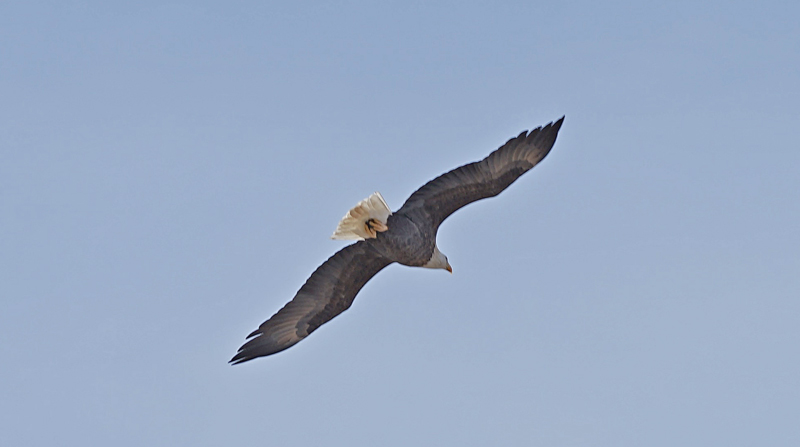
By the time I made it to the Whaley prescribed fire near Hill City, South Dakota, I was no longer hungry and was ready to see how the the U.S. Forest Service fire folks were going to pull this off.
It turned out that there was almost no snow on the south facing slopes and they were about 75 percent done with ignition when I pulled up. But there was still snow in some of the flat lands and shaded areas, enough to make it pretty easy to find snow fields, in addition to roads, to serve as control lines.
At the Elk Mountain weather station the temperature was in the 40s, the relative humidity in the low 30s, and the sky was partly cloudy. As it turned out, a good day for being out in the woods with a drip torch.
The video at the top of the article includes still photos, video clips, and an interview with Todd Pechota, the Fire Staff Officer for the Black Hills National Forest.



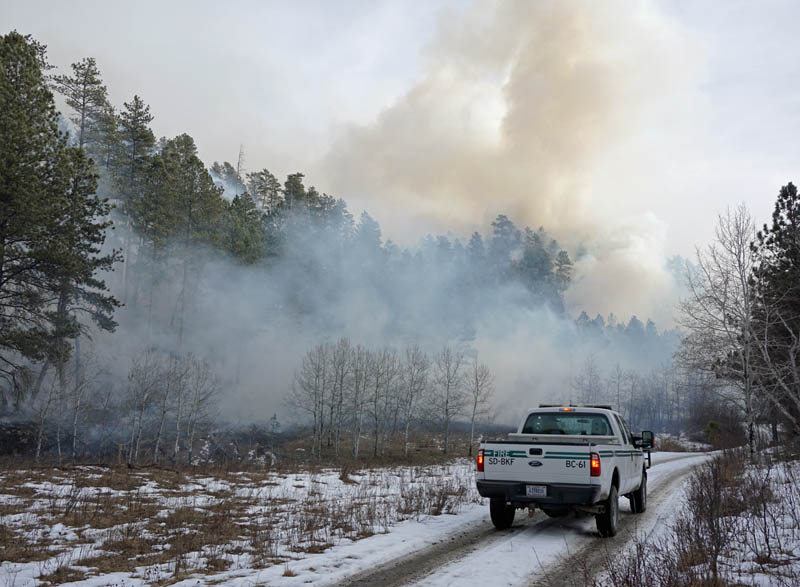
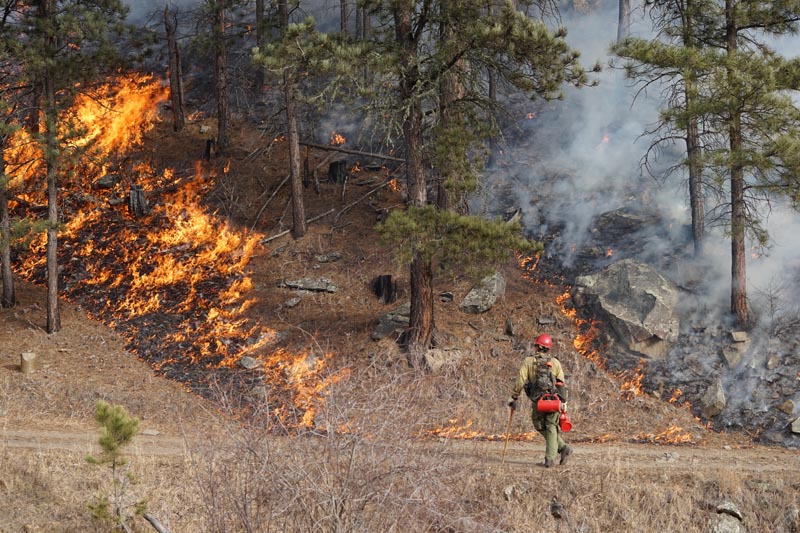
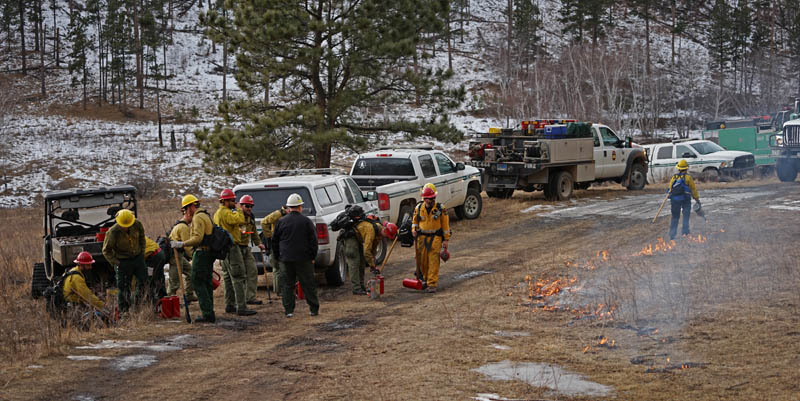
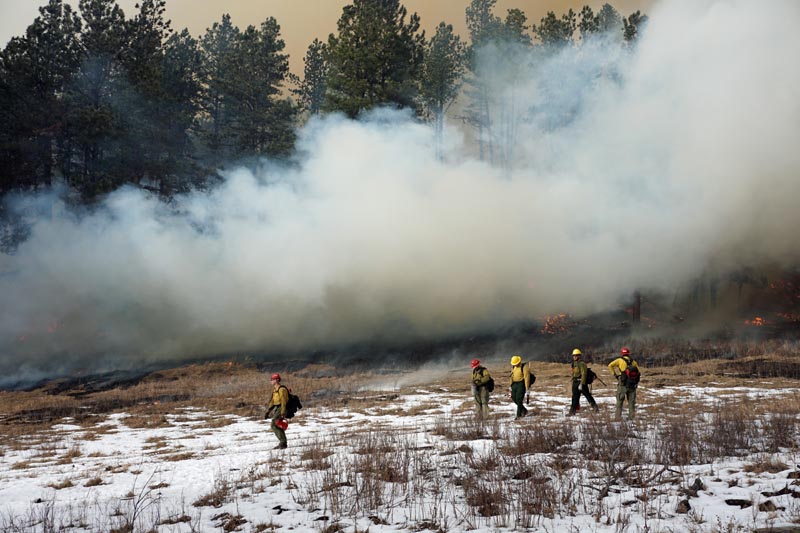
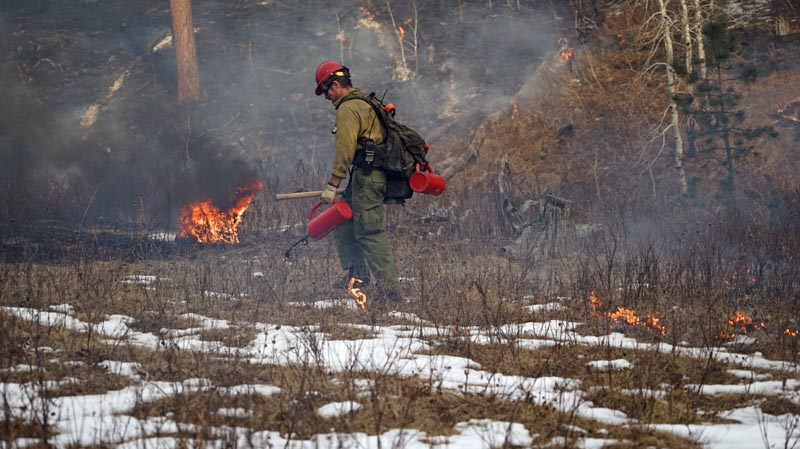
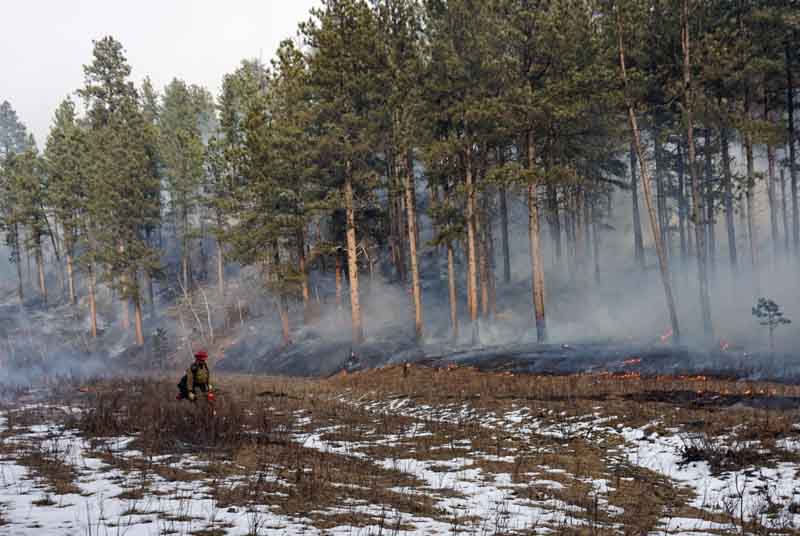
Great story, later in the winter this technique is used on the South to West facing prairie knobs here in the Driftless Area of Wisconsin in Minnesota, though on a smaller scale.
Great story, Bill. Looks like a nice, low-intensity burn in a beautiful pine stand. Wish I was out there!
Early spring burns using unmelted snow as barriers works GREAT! !! Done it more than once.
Good rx fire managers know to take advantage of any conditions.
Have you tried no snow but COLD +/- 10 degrees? It’s hard on pumps but often you can access wetlands you can’t even walk through in normal conditions.